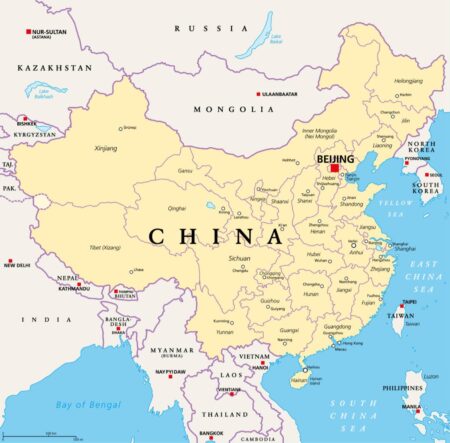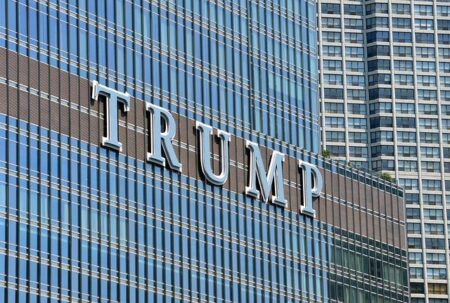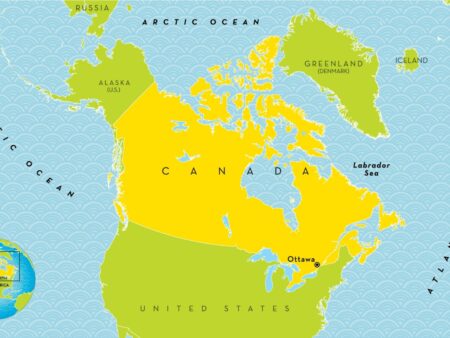Canada and the European Union have announced retaliatory tariffs in response to recent U.S. trade policies, further escalating tensions in the ongoing trade war initiated by the Trump administration. The new tariffs target key industries, highlighting global trade frictions.
Browsing: trade war
In a surprising shift, former President Trump announced the reinstatement of 25% tariffs on Canadian metals, reversing previous statements. This move raises concerns about trade relations and could impact various industries reliant on Canadian imports.
In live updates from Mark Carney’s latest address, Canada’s prospective Prime Minister pledged to tackle the ongoing trade war head-on. Meanwhile, Ontario’s government is set to implement new electricity tariffs affecting U.S. imports, raising tensions further.
China has officially retaliated against the tariffs imposed by Donald Trump, escalating the trade war between the two economic giants. The move signals a long-term response to protect its markets and interests, as both nations gear up for prolonged negotiations.
In response to U.S. tariffs imposed by the Trump administration, Canadians are strategizing innovative solutions to mitigate economic impacts. From diversifying trade partnerships to advocating local production, these efforts reflect a resilient spirit in the face of protectionism.
Mark Carney, renowned for his crisis management, aims to steer Canada through the ongoing trade war. As he navigates economic uncertainties, his leadership is pivotal in shaping fiscal policy and bolstering national resilience against global market fluctuations.
In response to escalating tensions in Trump’s trade war, Mexico, Canada, and China swiftly implemented new tariffs on U.S. goods. This retaliatory measure underscores the growing economic strain and uncertainty surrounding international trade relations.
In a bold economic move, President Trump has imposed tariffs on imports from Canada, China, and Mexico, igniting a trade war that analysts warn could escalate tensions and lead to significant price hikes for consumers across various sectors.
In response to President Trump’s tariffs, Canada and China have announced retaliatory measures, raising concerns of an escalating trade war. Both nations aim to protect their economies as tensions heighten in global trade relations.
Trump’s tariffs have ignited a wave of anger and retaliation among trading partners, fueling market unease. As nations respond with their own tariffs, analysts warn of potential disruptions in global trade and the economic ramifications that could follow.
Global stock markets took a hit as President Trump announced new tariffs on Canada, Mexico, and China, escalating trade tensions and raising concerns about potential economic repercussions. Investors reacted swiftly, driving down major indices.
China has announced the implementation of additional tariffs ranging from 10% to 15% on a variety of U.S. farm products, a move expected to escalate trade tensions between the two nations. The tariffs target key agricultural exports, impacting both economies.
Trump’s China tariffs have sparked retaliatory measures impacting U.S. farm products. Chinese tariffs on American agricultural goods threaten to undermine the struggling farming sector, intensifying trade tensions between the two nations.
In a significant move, President Trump has announced a 10% increase in tariffs on Chinese imports, escalating trade tensions between the two countries. This strategy aims to protect U.S. industries but may further complicate global supply chains and consumer prices.
As the deadline approaches for new tariffs on China, the U.S. Treasury chief is urging Canada and Mexico to align their trade policies with those of the United States. This call for harmonization aims to strengthen North American trade amidst escalating tensions.
President Trump announced plans to double tariffs on Chinese imports, escalating trade tensions ahead of upcoming negotiations. He also confirmed that punitive tariffs on Mexico and Canada will be implemented starting March 4, signaling a tough stance on trade policies.
In a bold economic move, former President Trump announced plans to impose tariffs on Mexico and Canada starting March 4, alongside an additional 10% tariff on imports from China. This decision aims to combat the ongoing fentanyl crisis impacting the U.S.
In a surprising move, Canada has announced retaliatory tariffs targeting imports from a long-time ally, escalating trade tensions. This decision reflects growing frustrations over ongoing disputes, signaling potential ramifications for bilateral relations.


















